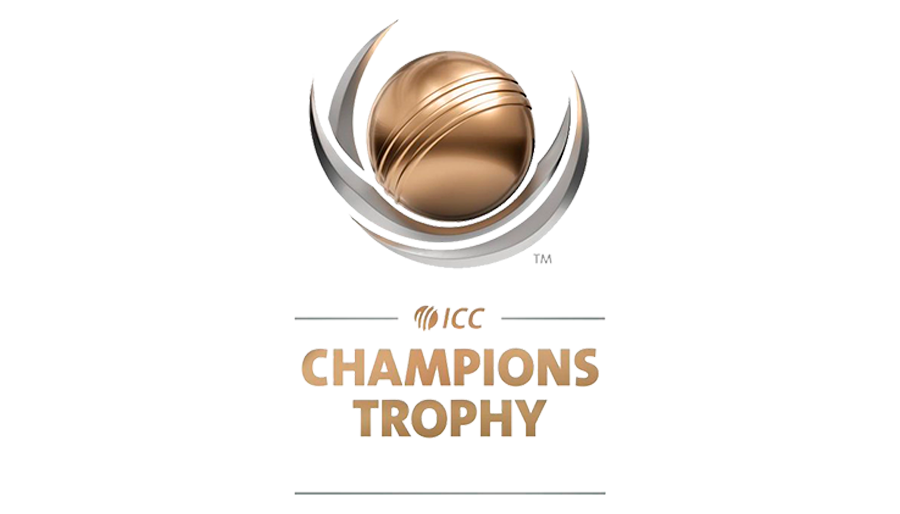The 2013 ICC Champions Trophy holds a distinctive position in the annals of cricket for numerous factors. The tournament, which took place in England and Wales from June 6 to June 23, consisted of the foremost eight One Day International (ODI) teams. This edition adhered to the refined and exclusive format that had become customary for the competition. The cricket matches were held at three distinct venues, namely The Oval in London, Edgbaston in Birmingham, and Sophia Gardens in Cardiff. A notable deviation from prior editions was the conspicuous omission of a designated day for the final match, thereby drawing attention to the progressing dynamics of the tournament’s regulations and scheduling.
India emerged victorious in the culmination of their campaign under the astute leadership of MS Dhoni. Triumphing over England in a final match impeded by inclement weather conditions at Edgbaston, they secured the coveted trophy. The tournament afforded an opportunity for burgeoning talents, such as Shikhar Dhawan, who displayed remarkable prowess as the highest run-scorer and was bestowed with the distinction of being named the player of the tournament. The voyage of England to the final, taking into account the advantageous circumstances of playing on their own territory, stands as a narrative of comparable fascination. The present iteration of the Champions Trophy was distinguished by a seamless amalgamation of proficiency, tactics, and an element of unpredictability, thus bolstering the worldwide allure and legitimacy of this condensed international competition. The cricketing display exhibited was a befitting demonstration of exceptional skills, effectively reinforcing the tournament’s standing within the sports calendar.
ICC Champions Trophy 2013 Venues
The 2013 edition of the ICC Champions Trophy took place at three renowned venues in the United Kingdom, namely The Oval in London, Edgbaston Cricket Ground in Birmingham, and Sophia Gardens in Cardiff (referred to as the Cardiff Wales Stadium during the tournament)
| City | Venue | Capacity |
|---|---|---|
| London | The Oval | 26,000 |
| Birmingham | Edgbaston Cricket Ground | 23,500 |
| Cardiff | Sophia Gardens | 15,643 |
The provided premises provided an ideal setting for the intense cricketing performance during the tournament. The Oval in London, boasting a seating capacity of 26,000, ranks among the most renowned cricket venues on a global scale. Edgbaston Cricket Ground situated in Birmingham and Sophia Gardens located in Cardiff are esteemed cricket venues that possess a substantial capacity of 23,500 and 15,643 spectators respectively. These arenas boast a venerable lineage of hosting prestigious international cricket matches. The designation of the United Kingdom as host venues for the 2013 ICC Champions Trophy served to validate the nation’s competence in organizing significant global cricket competitions, thereby enhancing the overall triumph of the tournament.
ICC Champions Trophy 2013 Team List
| Group | Team | Captain |
|---|---|---|
| A | Australia | Michael Clarke |
| A | England | Alastair Cook |
| A | New Zealand | Brendon McCullum |
| A | Sri Lanka | Angelo Mathews |
| B | India | Mahendra Singh Dhoni |
| B | Pakistan | Misbah-ul-Haq |
| B | South Africa | AB de Villiers |
| B | West Indies | Dwayne Bravo |
The ICC Champions Trophy encompasses cricketing nations representing various regions worldwide, effectively exhibiting distinctive amalgamations of skill and tactical approaches.
The aforementioned teams, guided by their respective captains, engaged in fierce competition to acquire the highly esteemed trophy. Every participating team in the tournament demonstrated their competitive edge by employing distinctive strategies and leveraging the prowess of their world-class players. The captains effectively assumed a pivotal position in guiding their respective teams, formulating astute tactical measures, and exemplifying behavioral conduct on the playing field. The exhibition of the cricket teams, originating from diverse regions across the globe, undeniably demonstrated the international allure of the sport.
ICC Champions Trophy 2013 Schedule and Results
| Date | Match Details | Results |
|---|---|---|
| 30 May 2013 | Pakistan v Sri Lanka | Match abandoned without a ball bowled |
| 1 June 2013 | Sri Lanka v India | India won by 5 wickets |
| 1 June 2013 | West Indies v Australia | Australia won by 4 wickets |
| 3 June 2013 | South Africa v Pakistan | Pakistan won by 7 wickets |
| 4 June 2013 | New Zealand v Sri Lanka | Sri Lanka won by 5 wickets |
| 4 June 2013 | India v Australia | India won by 243 runs |
| 8 June 2013 | England v Australia | England won by 48 runs |
| 9 June 2013 | Sri Lanka v New Zealand | New Zealand won by 1 wicket |
| 12 June 2013 | Australia v New Zealand | Match abandoned due to rain |
| 13 June 2013 | England v Sri Lanka | Sri Lanka won by 7 wickets |
| 16 June 2013 | England v New Zealand | England won by 10 runs |
| 17 June 2013 | Sri Lanka v Australia | Sri Lanka won by 20 runs |
| 6 June 2013 | India v South Africa | India won by 26 runs |
| 7 June 2013 | Pakistan v West Indies | West Indies won by 2 wickets |
| 10 June 2013 | South Africa v Pakistan | South Africa won by 67 runs |
| 11 June 2013 | West Indies v India | India won by 8 wickets (D/L method) |
| 14 June 2013 | South Africa v West Indies | Match tied (D/L method) |
| 15 June 2013 | Pakistan v India | India won by 8 wickets (D/L method) |
| 19 June 2013 | South Africa v England | England won by 7 wickets |
| 20 June 2013 | Sri Lanka v India | India won by 8 wickets |
| 23 June 2013 | India v England | India won by 5 runs |
Points Table
Group A
| Pos | Team | Pld | W | L | T | NR | Pts | NRR |
|---|---|---|---|---|---|---|---|---|
| 1 | England | 3 | 2 | 1 | 0 | 0 | 4 | 0.308 |
| 2 | Sri Lanka | 3 | 2 | 1 | 0 | 0 | 4 | -0.197 |
| 3 | New Zealand | 3 | 1 | 1 | 0 | 1 | 3 | 0.777 |
| 4 | Australia | 3 | 0 | 2 | 0 | 1 | 1 | -0.680 |
Group B
| Pos | Team | Pld | W | L | T | NR | Pts | NRR |
|---|---|---|---|---|---|---|---|---|
| 1 | India | 3 | 3 | 0 | 0 | 0 | 6 | 0.938 |
| 2 | South Africa | 3 | 1 | 1 | 1 | 0 | 3 | 0.325 |
| 3 | West Indies | 3 | 1 | 1 | 1 | 0 | 3 | -0.075 |
| 4 | Pakistan | 3 | 0 | 3 | 0 | 0 | 0 | -1.035 |
Final Highlights
The final match of the ICC Champions Trophy 2013 took place on June 23, 2013, at Edgbaston, located in Birmingham. The championship match was engaged by India and England, two formidable teams that demonstrated exceptional performance throughout the entire tournament. The anticipated nature of the match generated significant interest amongst cricket enthusiasts worldwide, as they eagerly awaited the encounter between these prominent cricket teams.
Following the triumphant coin toss, England made the calculated decision to opt for fielding initially, envisaging capitalizing upon the prevailing pitch conditions while curtailing India’s formidable batting lineup. India, under the guidance of their leader, Mahendra Singh Dhoni, embarked on their batting innings with a deliberate and careful approach. Nevertheless, the team encountered initial obstacles as the bowlers from England exhibited a formidable performance, exerting consistent pressure and successfully dismissing batsmen at frequent intervals.
Despite the arduous circumstances, Virat Kohli demonstrated unwavering commitment to India as he played a pivotal innings, emerging as the top scorer with a commendable tally of 43 runs from 34 deliveries. Kohli’s contribution significantly facilitated India in achieving a cumulative score of 129 runs, while enduring the loss of 7 wickets, within the designated 20 overs. Ravi Bopara exhibited exceptional performance as he emerged as the standout English bowler, skillfully securing three wickets while allowing a mere 20 runs throughout his four-over spell.
England commenced their innings with a steadfast commitment to achieving a target score of 130. Nevertheless, the resolute Indian bowlers exhibited unwavering determination in safeguarding their overall score and securing a triumph. Ravichandran Ashwin and Ravindra Jadeja exhibited exceptional leadership in spearheading the formidable Indian bowling attack, thereby unsettling the English batsmen.
Throughout the duration of the match, the batsmen representing England encountered difficulties in establishing their rhythm, ultimately resulting in the consistent downfall of wickets. Eoin Morgan emerged as the highest scorer for the England cricket team, amassing a total of 33 runs from 30 deliveries. Nevertheless, the consistent downfall of wickets impeded their advancement or success. The Indian bowlers proficiently held the opposition batsmen under firm control while effectively exerting a relentless pressure on the English team.
In an exhilarating culmination, the cricket match reached its conclusion with England requiring a total of 15 runs from the ultimate over in order to attain triumph. Nevertheless, Jadeja demonstrated composure and executed an exceptional final over, consequently limiting England to a mere nine runs. India emerged as the victors by a slender margin of 5 runs, effectively defending their total.
The Player of the Match accolade was bestowed upon Ravindra Jadeja as a result of his commendable all-round exhibition, which showcased his significant contributions in both batting and bowling. India’s victory in the ICC Champions Trophy 2013 Final represented their second success in the history of the tournament, following their earlier triumph in 2002.
The ultimate exhibition exemplified the heightened level of fervor, dexterity, and competitive ardor that characterized the ICC Champions Trophy. The contest proved to be a remarkable exhibition of skill and resolve exhibited by the players representing both teams, thus affording the spectators an exhilarating culmination to the competition.
FAQ
What is the ICC Champions Trophy 2013?
Who won the ICC Champions Trophy in 2013?
Where was the ICC Champions Trophy 2013 held?
How many teams participated in the ICC Champions Trophy 2013?
Who were the captains of the teams in the ICC Champions Trophy 2013?
What records were set in the ICC Champions Trophy 2013?
What was the significance of the ICC Champions Trophy 2013?
Who were the coaches for the teams in the 2013 ICC Champions Trophy?
Conclusion
To conclude, the ICC Champions Trophy 2013 represented a pivotal occurrence within the realm of international cricket, characterized by exhilarating contests, enthralling displays of skill, and the dominant presence of sportsmanship. The tournament, which took place in the United Kingdom at renowned venues, successfully gathered elite teams from various parts of the globe, establishing an international commemoration of the sport of cricket.
The victory of India in the tournament not only highlighted the prowess and skill prevailing within their team, but also emphasized their overall superiority and capability. Each team demonstrated its distinctive strategies and playing styles on the field, under the leadership of their respective captains and guidance of seasoned coaches. This phenomenon not only engendered a captivating atmosphere within the world of cricket but also unveiled the ample breadth of its inherent wealth and variety.
Upon contemplation of the ICC Champions Trophy 2013, the recollections of fierce competition, exceptional individual performances, and collective spirit amongst teams persistently echo, reaffirming the profound importance of this tournament within the chronicles of cricket.


